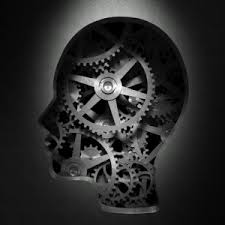
Poker Psychology
These articles, many from poker book author Ian Taylor, look at poker psychology discussing such topics as bad beats, downswings, tilt, and controlling your emotions. Ian Taylor and Matthew Hilger wrote the classic poker book, The Poker Mindset: Essential Attitudes for Poker Success which discusses these topics in more details.


Poker Psychology : Rationalizing Decisions
the concept of rationalizing in poker, explaining how players often justify their decisions based on emotions or impulses rather than logical reasoning, emphasizing the importance of making decisions based on long-term expectations and the dangers of relying solely on instinct
Why Do Players Go on Tilt?
the psychological and emotional reasons behind poker players going on tilt, emphasizing that while bad beats and losses can trigger tilt, other factors like emotions, fatigue, boredom, and even alcohol can also contribute
Poker Psychology : Logical Fallacies
common logical fallacies that poker players often fall victim to, emphasizing the importance of clear, logical thinking for success at the poker table and warning against making decisions based on flawed reasoning or misconceptions
Poker Pitfalls Resulting From a Faulty Mindset
while technical skills in poker are essential, many players fail to achieve success due to mindset issues such as not accepting the realities of poker, being short-term focused, playing with fear, letting ego interfere, and not continually improving their game
The Journey : Stages of Poker Development
the various stages a poker player goes through in their journey, from being a complete beginner to achieving mastery, emphasizing the importance of continuous learning, self-awareness, and the drive to improve
Poker Tilt Tips : Your Guilty Conscience
psychological aspects of poker tilt, likening it to the conflicting voices of temptation and reason, as portrayed in Eminem's song "Guilty Conscience"
Working in Your Underwear: The Pitfalls of Comfort
the potential pitfalls of becoming too comfortable while playing online poker, emphasizing the importance of maintaining a disciplined posture and behavior to avoid developing bad habits that could be detrimental in live games, and offers strategies to ensure one remains engaged and alert during online sessions
The Many Faces of Poker Tilt
various forms of poker tilt, emphasizing its psychological aspects and offering strategies to recognize and combat this emotional state that can adversely affect a player's game
How Not to Tilt
guidance on managing emotions and maintaining a positive mindset during poker games, emphasizing the importance of understanding the game's nature, preparing for losses, and viewing setbacks as learning opportunities to enhance one's skills and strategies in Omaha high/low
Poker Table Chat
the intricacies of online poker table chat, recommending caution as it can inadvertently reveal strategies, but also highlighting its potential strategic benefits

